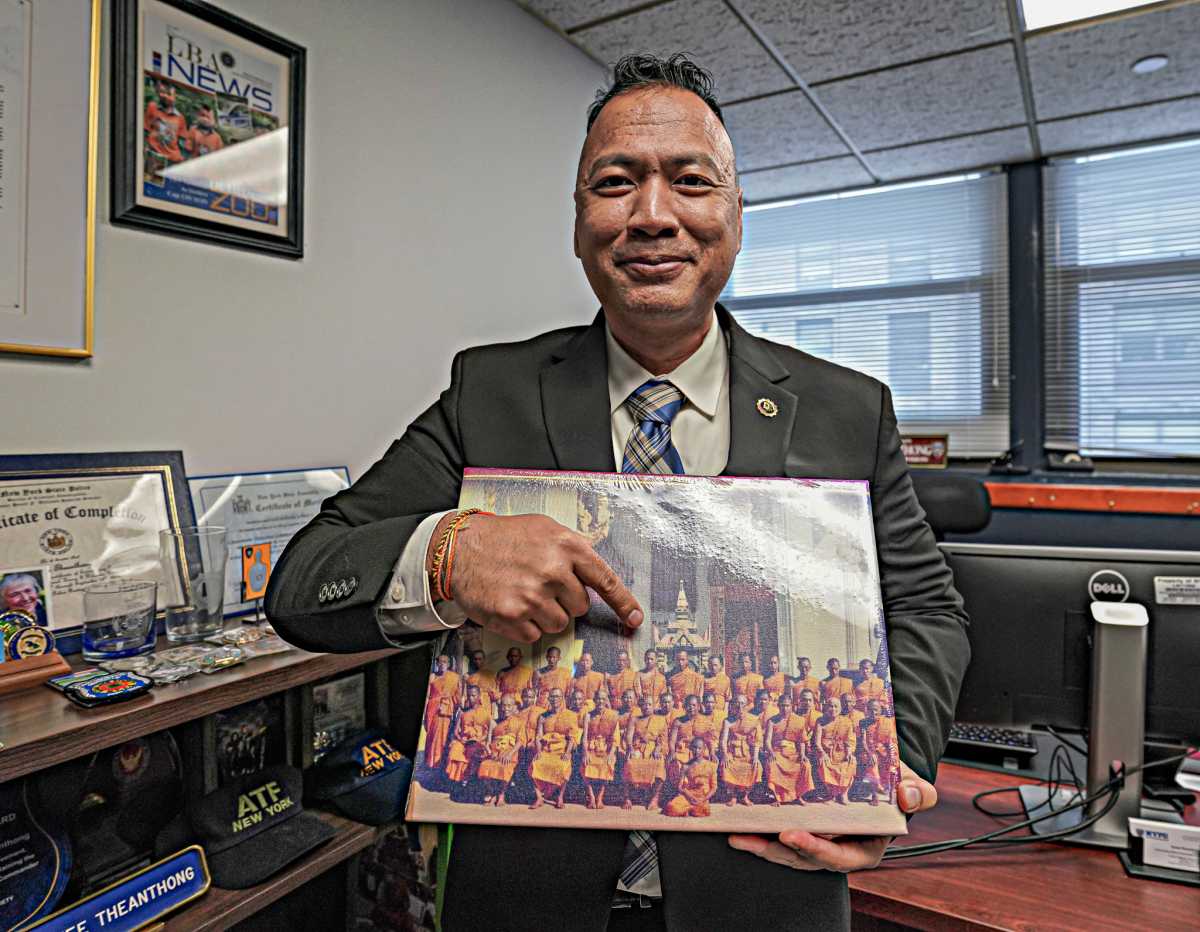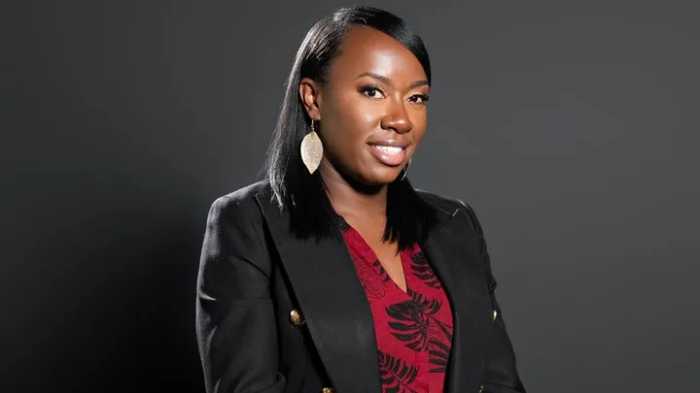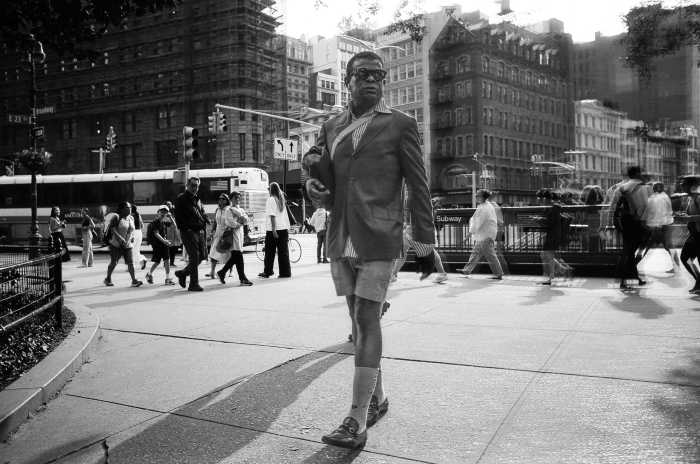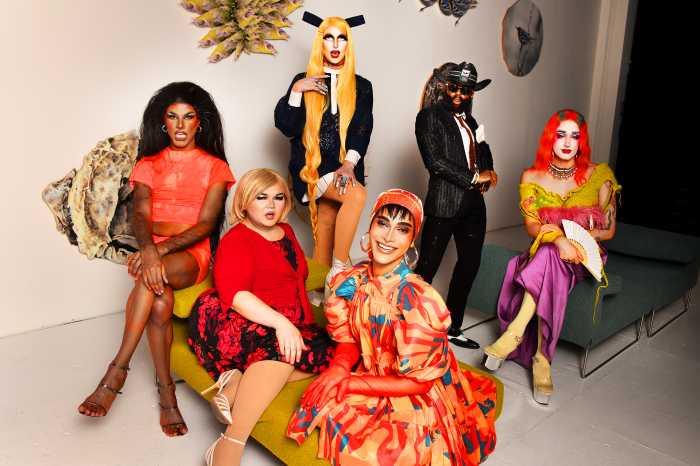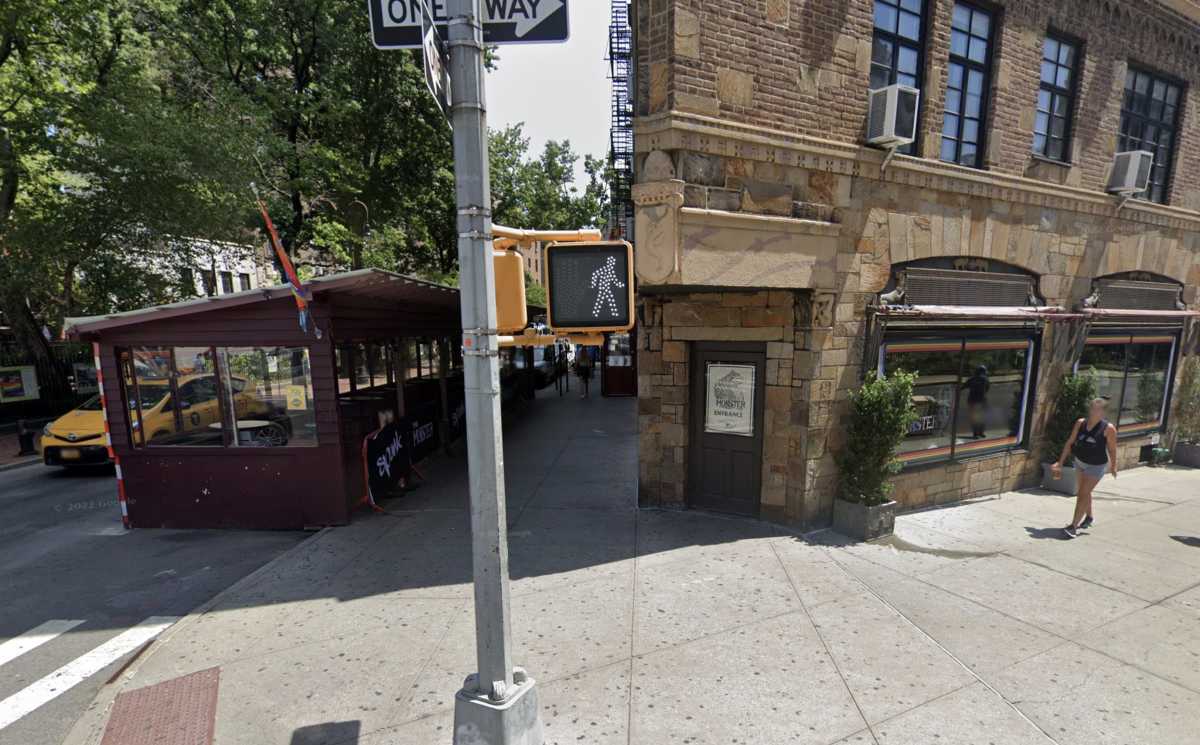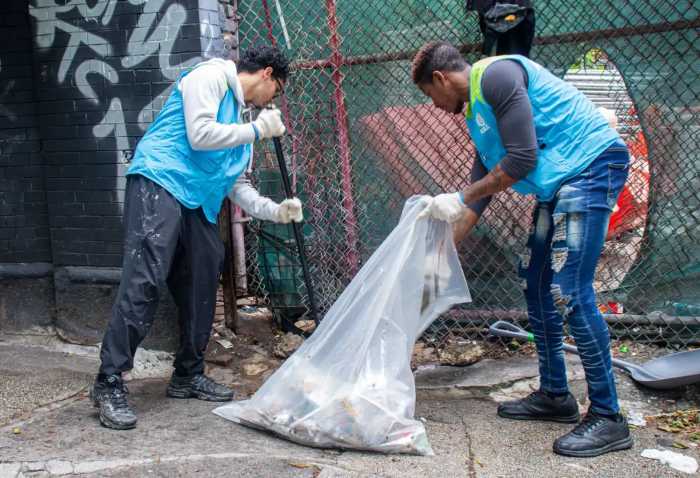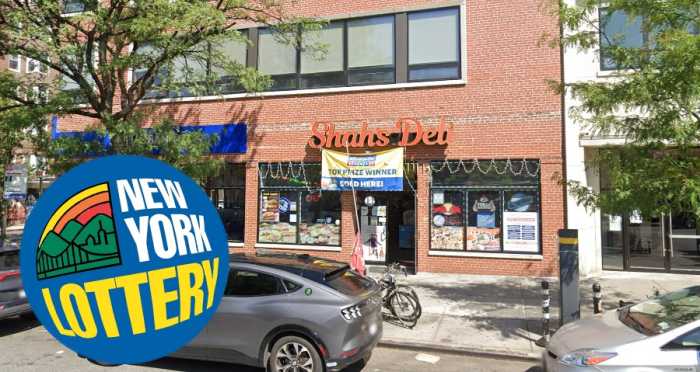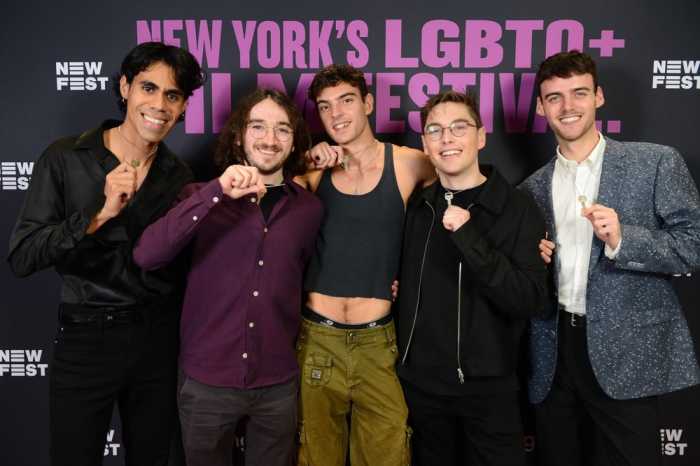Captain Tawee Theanthong’s path to the NYPD was truly one of enlightenment.
Theanthong, now head of the Detective Bureau Central Robbery Division, was born in Queens’ Elmhurst Hospital to Thai parents who had emigrated to the Big Apple. While he was born in the United States, his brother was born in Thailand, leaving him unable to meet his sibling until he was 6 years of age.
This mixture of American and Thai culture would follow him throughout his life and ultimately lead to him becoming a monk. Traditionally young men in Thailand would spend time as a monk ranging from one day to three months before setting-off in the world to find a career or a family. This is done to bring honor and good tidings to the person’s family.
However, Theanthong decided to travel to Thailand to serve as a monk for far longer than what was expected.
“I really wanted to learn about the religion, I realized I don’t know much about Buddhism. So, I decided to stay for as long as I could, which turned out to be about nine months for me,” Theanthong told amNewYork Metro. “I remember leaving the airport and you could smell the heat and the dust and almost, like, the fumes of Thailand.”
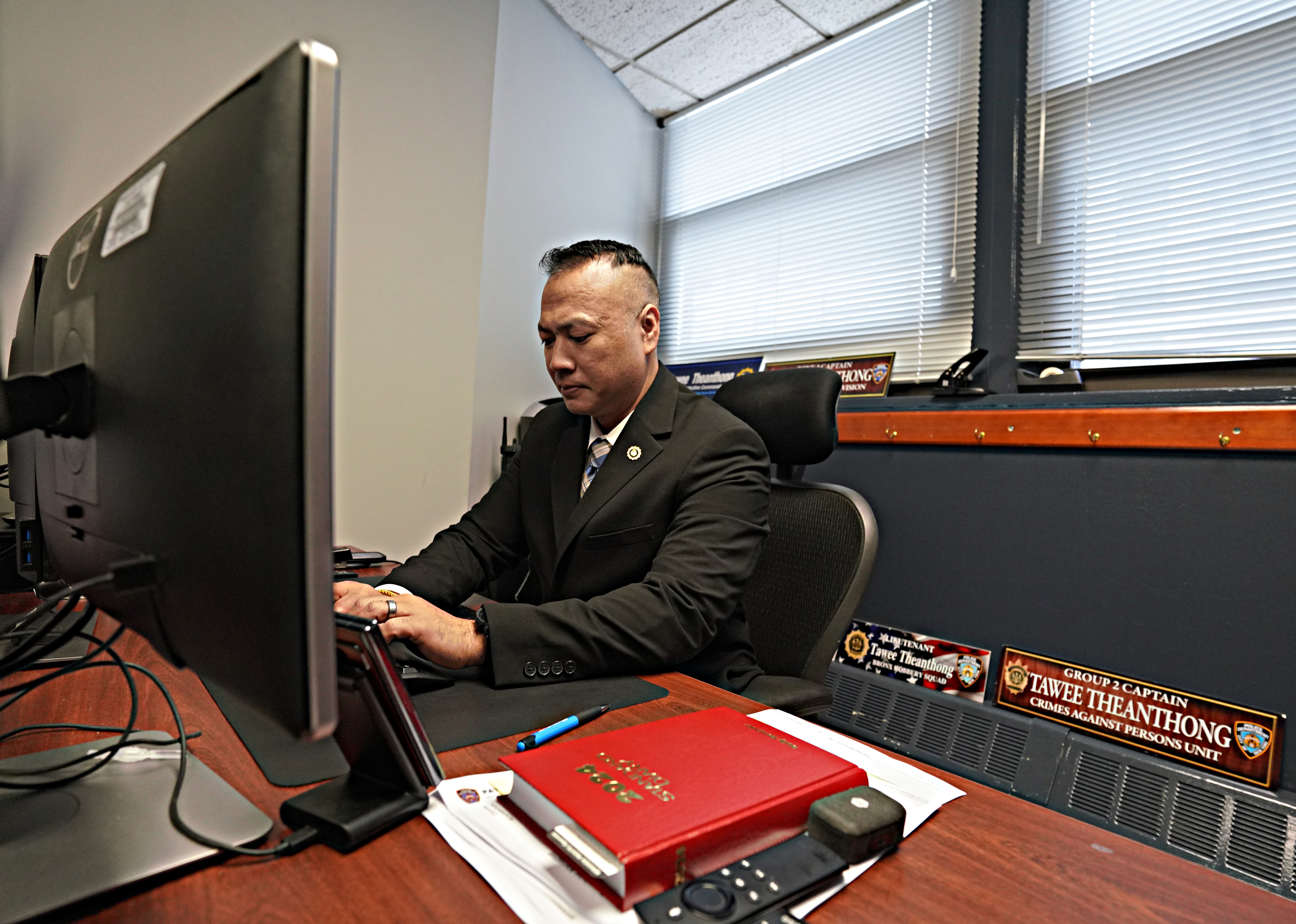
Only 22 then, Theanthong rode up the Mekong River to the village where he said his father originally hailed from. It was here at a monastery he would shave his head and eyebrows and dress in robes. According to Theanthong, this is a process intended to remove the individuality of monks and personal possessions.
“In Buddhism we’re all part of the whole. You’re born into this world one way, and we leave the world one way, we don’t bring any of that with us,” Theanthong said. “That way we can focus on other things like helping other people.”
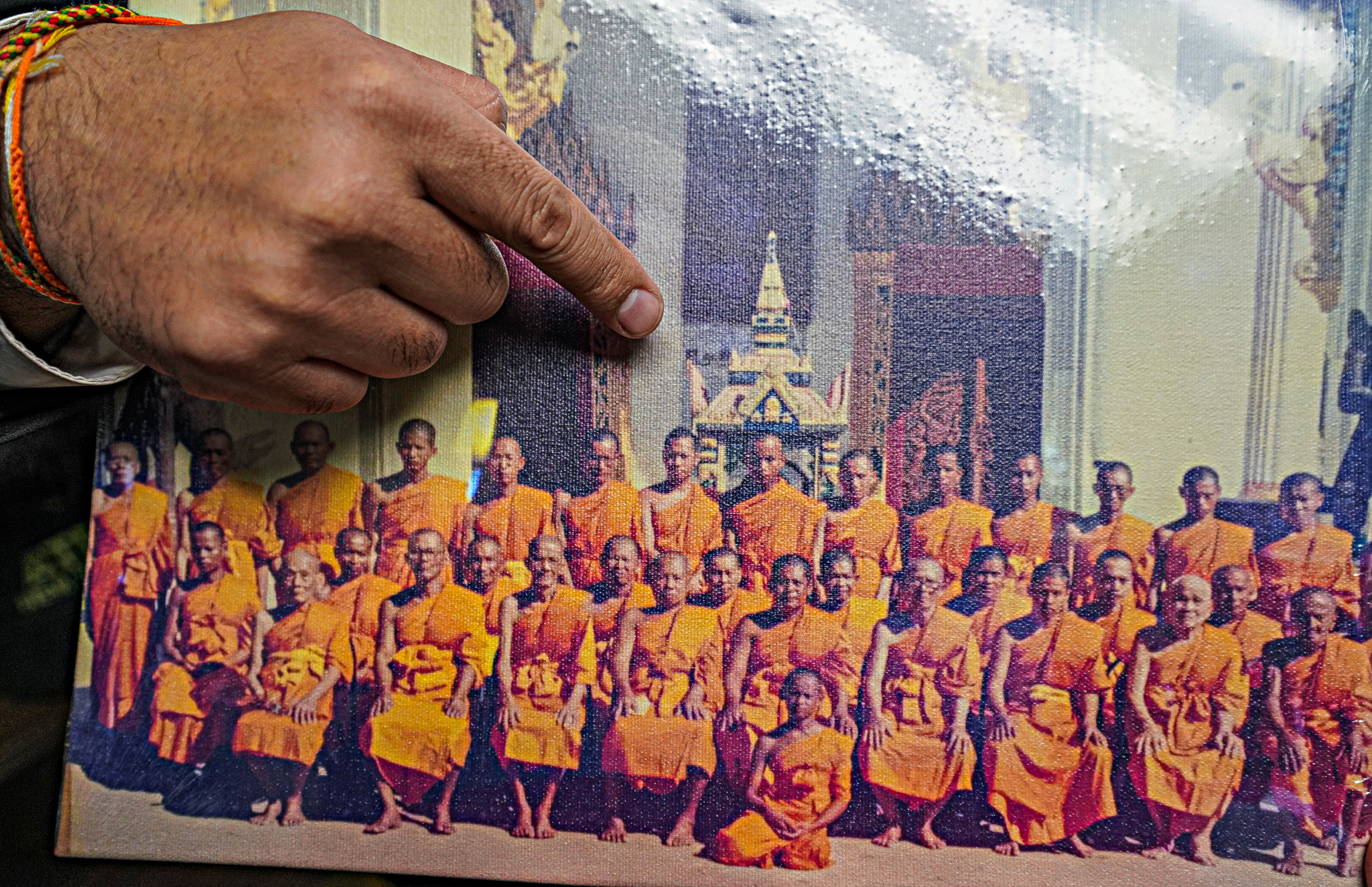
The life of a monk is not an easy one. Provided with only a bowl, those observing the religion must not eat until villagers donate food to them. Monks are not permitted to cook, and they do not buy food, leaving their only form of nourishment to come from the good will of others.
Although this spiritual existence is difficult, Theanthong said he was determined to go above and beyond and not take any shortcuts. Showcasing his devotion to the teachings of Buddha, Theanthong decided to sit in the main living area of the temple for three days without eating — only drinking water. Over the course of the 72 hours villagers would arrive to watch his journey in awe, even inspiring one man to overcome his alcohol addiction.
“A couple days after that, a man came by and he was carrying a small bag of bananas to make a donation,” Theanthong said. “And he says: ‘I haven’t had a drink in 30 days. Because I remember thinking to myself, if this man can go without food for three days, for what we need to eat to live, I can go without drink for three days. And then three days became six days, six days became 10 days and it became 30 days.’”
During another moment in his nine-month stay, Theanthong joined his fellow monks in helping build a road for villagers and was even able to show that work to his family during a visit decades later. Other times he presided over weddings and funerals before eventually deciding it was time to return to New York.
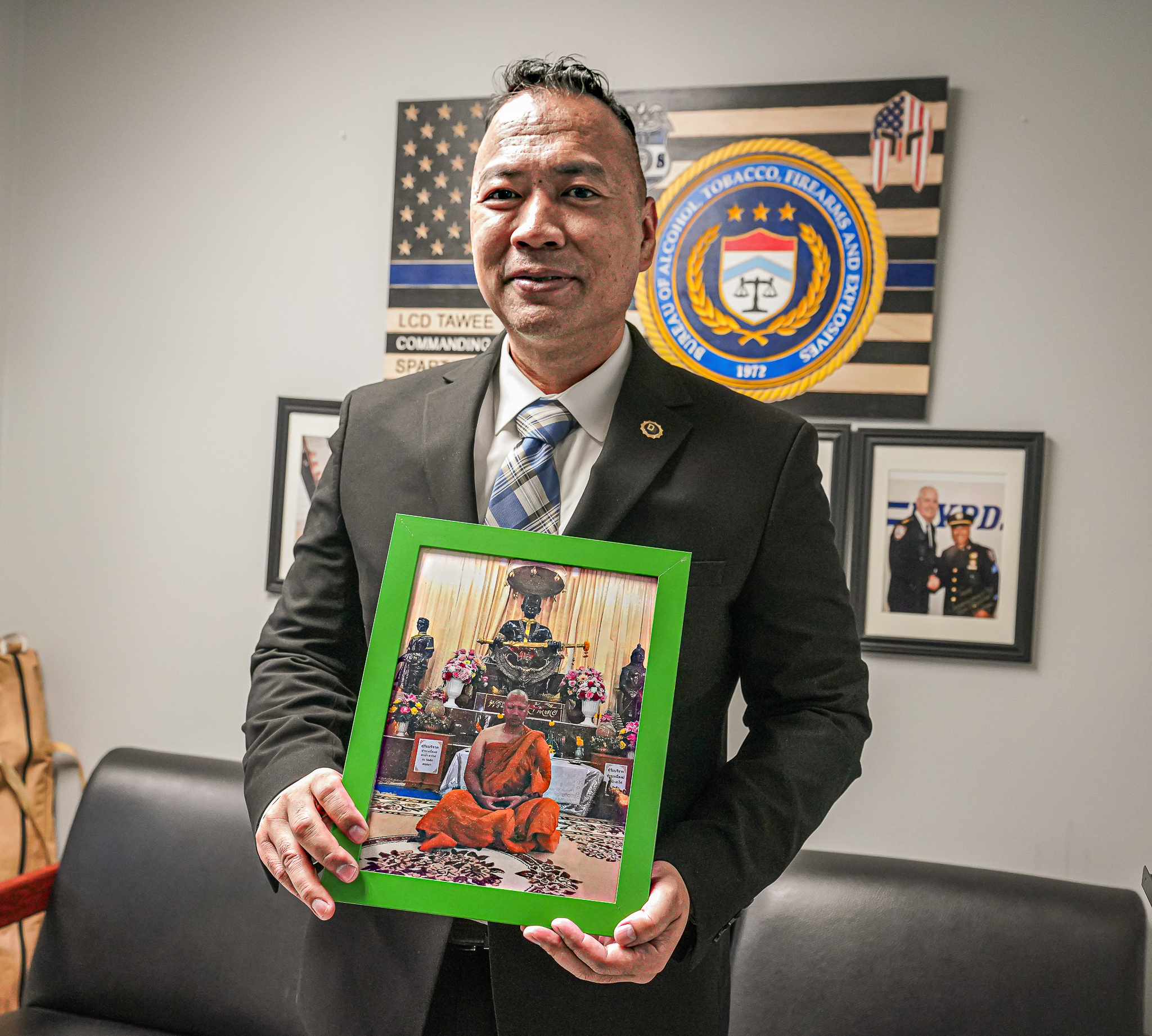
Once back home, Theanthong said he was able to achieve a lifelong dream of becoming a cop and swiftly worked his way up through the ranks of the department. However, he says the lessons he learned as a monk stayed with him and taught him how to show love and compassion to victims of crimes and to always remember that there are human beings involved in every crime.
“I’ve been in the NYPD for 20 years, and I still take those lessons with me and how we talk to people, how we treat people. Our job is people. If you break into a car that person can’t go to work, they have to fix that. That money they have to use to repair that might be rent money,” Theanthong said. “We have to remind ourselves sometimes that these aren’t just numbers, every single one of these cases is a person and that’s what I try to get across to my people too.”
Most recently Theanthong has worked on high profile crimes such as the citywide, migrant led snatch-and-grab thefts that saw scooter riders steal phones and other valuables from unsuspecting pedestrians.
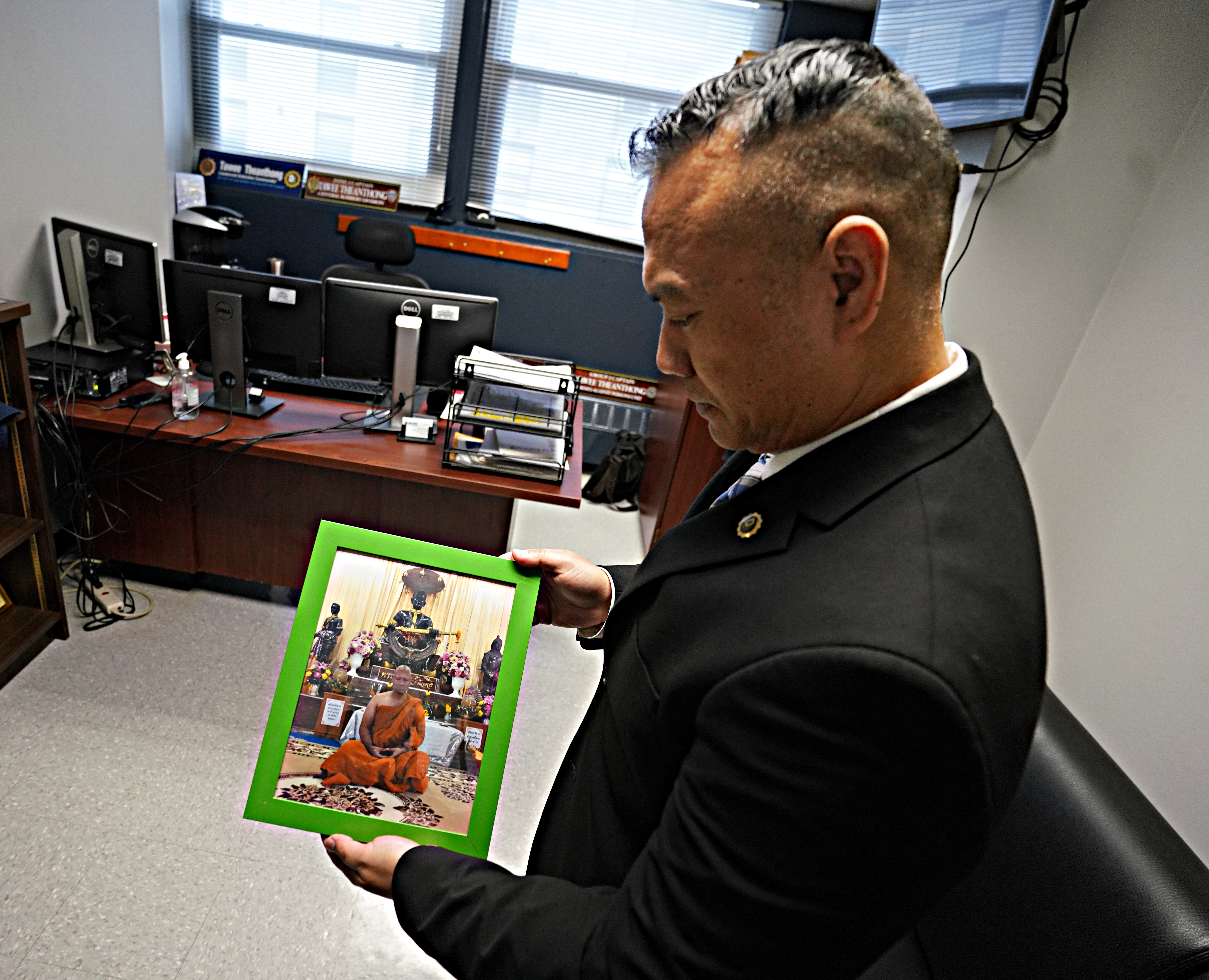
Read more: Union Square Blooms in April: Magnolias and Springtime



